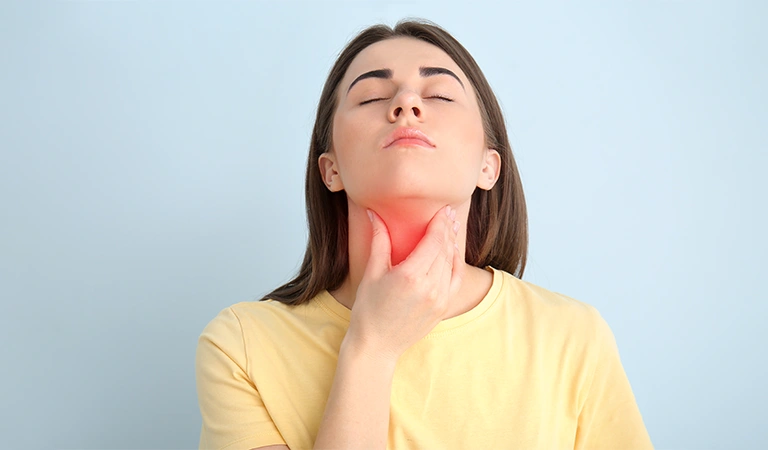

Understanding the Thyroid-Hair Loss Connection: A Comprehensive Guide
Thyroid Dysfunction Shapes Your Hair Health
Are you tired of dealing with bad hair days? Constantly battling with dry, brittle locks that just won't cooperate no matter what products you try? It might be time to take a closer look at your thyroid health. Your thyroid plays a crucial role in regulating your metabolism, energy levels, and even the health of your hair. When it's out of whack, it can wreak havoc on your locks, leaving them looking dull, lifeless, and prone to breakage. But fear not! With the right approach, you can say goodbye to bad hair days forever.
Understanding Thyroid Function
Before we dive into how thyroid issues can affect your hair, let's first understand what the thyroid actually does. The thyroid is a small gland located in the front of your neck, and it produces hormones that regulate your body's metabolism. These hormones play a vital role in controlling how your body uses energy, which in turn affects everything from your weight to your mood to the health of your hair.
There are two key thyroid hormones:
- Thyroxine (T4): The inactive form, which converts into the active form, triiodothyronine (T3), in the liver and other tissues.
- Triiodothyronine (T3): The active form of the hormone.
Thyroid Disorders and Hair Loss:
Thyroid disorders, whether hypothyroidism (underactive thyroid) or hyperthyroidism (overactive thyroid), can indeed influence hair growth. The thyroid gland plays a crucial role in producing hormones that regulate various bodily functions, including the hair growth cycle. When thyroid hormone levels are imbalanced, it can disrupt this cycle, leading to hair loss.
Common Hair Loss Patterns Associated With Thyroid Dysfunction.
Hair loss is a common thyroid symptom experienced by individuals, whether it's hyperthyroidism or hypothyroidism. However, the patterns of hair loss can vary between the two conditions.
Hypothyroidism:
- Diffuse thinning: This is the most common pattern associated with hypothyroidism, where there's a general decrease in hair volume across the entire scalp.
- Telogen effluvium: Excessive hair shedding can occur, leading to noticeable hair thinning all over the scalp.
- Eyebrow thinning: Loss of hair in the outer third of the eyebrows is a characteristic sign of hypothyroidism.
- Dry, coarse hair: Due to decreased thyroid hormone production, hair may become dry, brittle, and coarse.
Hyperthyroidism:
- Diffuse thinning: Similar to hypothyroidism, hyperthyroidism can also cause overall hair thinning. However, it may be more noticeable in the frontal scalp in women and the vertex in men.
- Brittle hair: Hair can become fragile and prone to breakage due to hyperthyroidism.
It's crucial to understand that factors like stress, genetics, aging, and certain medications can also contribute to hair loss. If hair loss is suspected to be related to a thyroid problem, it's important to consult a doctor for proper diagnosis and hyperthyroidism treatment and hyperthyroidism treatment.
Thyroid Hair Loss Treatment Options
Diagnosis
When diagnosing thyroid conditions, doctors usually start with a thorough review of the patient's medical history, followed by an assessment of symptoms and a physical examination. Blood tests are commonly requested to measure thyroid hormone levels and evaluate thyroid function, aiding in the accurate diagnosis of any potential thyroid disorders.
Conventional Treatment
Conventional methods of addressing hyperthyroidism typically involve the use of synthetic hormones for replacement therapy. However, these conventional treatments can frequently result in a dependency on artificial hormones, which may be accompanied by adverse effects such as nausea and fatigue. Despite their widespread use, the drawbacks associated with these therapies have led many individuals to seek alternative approaches for managing hyperthyroidism.
Homeopathy Treatment for Hairfall and Thyroid:
Homeopathy offers a personalized approach to treating thyroid disorders by identifying characteristic symptoms and selecting remedies to align with them. For example, symptoms of an overactive thyroid, like rapid heartbeat and restlessness, prompt the use of specific remedies to restore balance. Conversely, symptoms of an underactive thyroid, such as fatigue and weight gain, are targeted with tailored remedies to support thyroid function. Emotional symptoms like anxiety can also be addressed, with remedies chosen to match the individual's mental state. By considering factors like constitution and lifestyle, homeopathy aims for holistic treatment addressing root causes and promoting long-term well-being
Consulting a qualified homeopathy doctor allows for personalized evaluation and recommendations, providing a gentle, safe and natural approach to supporting thyroid health.
Why Dr Batra’s?
Our 35+ years of expertise in homeopathy offers a holistic approach to health, focusing on both symptoms and underlying causes. At our clinics, experienced homeopathic doctors create personalized hair loss treatment in a professional environment. We prioritize addressing hair fall symptoms and thyroid imbalances. With a strong reputation for effectiveness and trust, Dr. Batra's Healthcare provides comprehensive care using homeopathic medicines, advance international aesthetic treatment, and dietary guidance to promote hair regrowth and thyroid health. Remember to consult a medical professional before starting any treatment, especially for complex conditions like thyroid disorders, which may require comprehensive medical management.
Additional Tips for Supporting Hair Health:
- Incorporate nutrient-rich foods: Include protein, iron, vitamins A, C, D, and E, and omega-3 fatty acids in your diet. Examples: leafy greens, eggs, nuts, seeds, fish, lean meats, fruits, and vegetables.
- Stay hydrated: Drink plenty of water to support scalp hydration and hair growth.
- Add biotin-rich foods: Incorporate eggs, nuts, and whole grains for healthy hair maintenance.
- Practice relaxation techniques: Try deep breathing, meditation, yoga, or tai chi to reduce stress levels, which can affect hair health.
- Stay active: Engage in regular physical activity to alleviate stress and promote well-being.
- Prioritize sleep: Aim for 7-9 hours of quality sleep per night to support thyroid function and overall health.
- Limit caffeine and alcohol: Excessive consumption can disrupt thyroid function and worsen symptoms.
- Reduce exposure to toxins: Choose organic produce and natural personal care products to minimize exposure to harmful chemicals.
- Seek professional advice: Consult healthcare professionals or a registered dietitian for personalized guidance on maintaining healthy hair and overall well-being.
Conclusion
Understanding the intricate relationship between thyroid health and hair loss is crucial for effective management and treatment. Thyroid disorders can significantly impact hair growth, disrupting the hair growth cycle and leading to thinning or loss. Through proper diagnosis and treatment, including conventional approaches and holistic options like homeopathy, individuals can address thyroid dysfunction and promote hair health. Additionally, incorporating lifestyle changes such as a nutrient-rich diet, stress management techniques, and adequate sleep can further support overall well-being and hair health. By adopting a comprehensive approach, individuals can take proactive steps to manage thyroid-related hair loss and promote optimal health and vitality.




